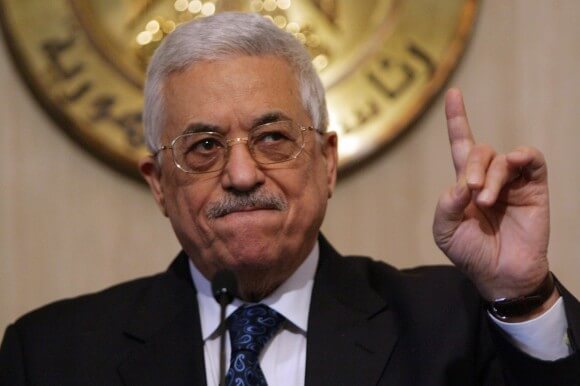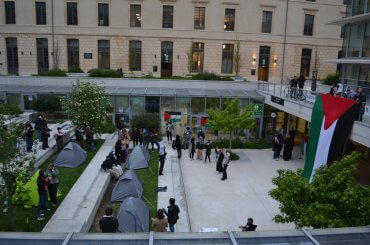Palestinian Authority (PA) Finance Minister Shukri Bishara announced on Sunday that the PA will be implementing a series of austerity measures in the wake of a major budgetary crisis, following a dispute with Israel over payments to families of Palestinian prisoners in Israeli jails.
Last month, Israel announced it would deduct five percent of the monthly revenues it transfers to the PA from taxes collected on imports to the West Bank and Gaza Strip.
The five percent sum, Israeli officials said, represented the amount the PA pays in pensions to the families of Palestinian political prisoners. The Israeli government passed a law last July allowing for the state to freeze such funds.
Israel has enforced such punitive cuts, with the support of the US government, alleging that the payments encourage further violence, but the PA has denied such allegations, maintaining that the payments serve as a form of welfare for Palestinian families who have lost their major breadwinner.
After the deduction announcement last month, Palestinian President Mahmoud Abbas said the PA would refuse to accept any of the tax revenues in protest of the law.
The tax revenues, according to former Palestinian Prime Minister Rami Hamdallah, totalled 700 million shekels ($1,931,633), accounting for nearly have of the PA’s budget.
During a press conference on Sunday, Bishara said that until Israel hands over the entirety of the tax transfers, the PA will only pay its workers half the amount of their monthly wages, amounting to no more than 10,000 shekels ($2,760) monthly.
The PA will continue to pay in full its lowest-earning employees with monthly salaries below 2,000 shekels ($550), which represents around 40 percent of its workforce.
Bishara added that in addition to the salary cuts, the PA will also be stopping all promotions, appointments, and bonuses; halting all new property and car purchases; and cutting expenses on travel, hosting guests and fuel.
“We will spend money in accordance with our priorities in a logical, rational and just manner and in a way that does not impact the services provided to citizens,” Bishara said, adding that depending on changes in the PA’s finances, the government could amend its decision in the coming months.
According to Bishara, the PA will also have to take bank loans amounting to between $50 million (£38.42 million) to $60 million for the next five to six months to weather the crisis.
Despite the major financial setbacks, Bishara said, the PA will continue to pay the families of prisoners their full monthly pensions. “No force on earth can alter that,” he said.
US officials have accused the PA of “manufacturing a crisis” over Israel withholding tax revenues.
During a closed-door UN Security Council meeting, Trump’s special envoy to the Middle East Jason Greenblatt reportedly told officials “it is entirely inappropriate to focus on Israel as the source of this crisis. It is the Palestinian Authority that has chosen to manufacture the current crisis.”
Last week, Greenblatt tweeted that “the Palestinian Authority’s institutionalization of support for terrorism is unacceptable and must be called out, unequivocally by all of us. The time has come for everyone to stop looking the other way.”
In a Sunday Op-Ed on Haaretz, Chief Negotiator of the PLO Saeb Erekat slammed the US and Israel, saying “the welfare of thousands of families has now become a tool for the Israeli government and the Trump administration to dehumanize Palestinians, while whitewashing the effects of the Israeli occupation over millions of Palestinian lives.”
“Such payments are a social responsibility; they also contribute to the costs of reinserting released prisoners back into society, among other important considerations,” Erekat continued, highlighting the fact that nearly every Palestinian family has had a relative imprisoned by Israel.
“Since 1967, the Israeli occupation has imprisoned over 900,000 Palestinians. The vast majority have gone to military ‘courts; whose aim is to legitimize the arbitrariness of the occupation,” he said, noting that Israel’s “kangaroo courts” have a conviction rate of nearly 100%, including against children.
The PA has been facing increasing unpopularity in both the West Bank, and Hamas-controlled Gaza, where anti-Abbas protests have made waves in recent weeks.
Palestinian hopelessness and frustration with their leaders is on the rise, with polls showing that Palestinians ranked corruption as the second largest problem they face after the economic crisis – higher than the Israeli occupation, which ranked third.
The new austerity measures, coupled with already high rates of poverty and unemployment, few prospects of free and democratic presidential elections, and the widely unpopular social security law, will only exacerbate the already dire situation of Abbas and the PA.


